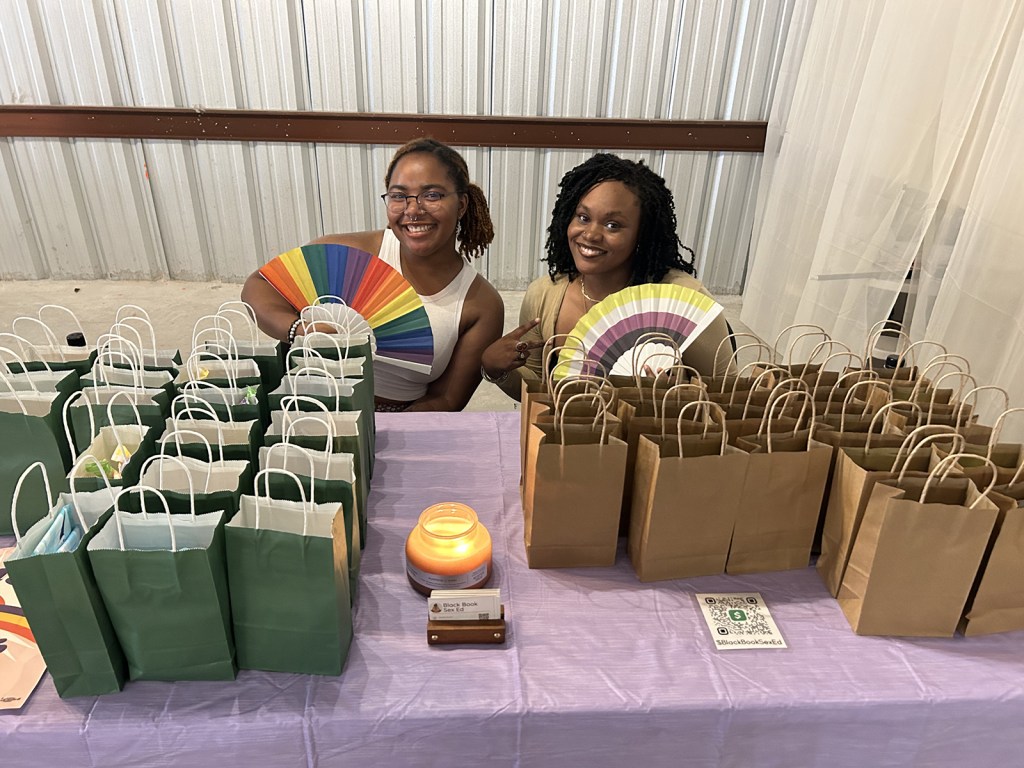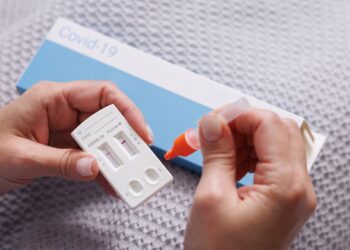Limya Harvey and Cydney Mumford set up a folding table a few times a month on the University of Texas-San Antonio campus to give away kits containing emergency contraceptives, condoms, and lube, or menstrual products like tampons and pads. They typically bring 50 of each type of kit, and after just an hour or two everything is gone.
The 19-year-old sophomores — Harvey is enrolled at UTSA and Mumford at Northeast Lakeview College — founded the organization Black Book Sex Ed last spring. Their mission is to educate students and others in need about sexual health and connect them with free services and products packaged into kits they distribute on campus, in the community, and through their website.
“Both of us grew up rather lower-income,” Mumford said, “so there’s a soft spot as it relates to people who say, ‘Oh, I just don’t have it right now.’ That’s part of the reason we started doing this.”
Harvey and Mumford aren’t alone. A growing number of students on college campuses nationwide are stepping in to provide other students with free or low-cost emergency contraceptives, birth control, and menstrual products.
They are also pushing back against threats to their reproductive freedom since the U.S. Supreme Court’s Dobbs decision last year, which eliminated federal abortion protections.
Although emergency contraceptives are legal in every state, some policymakers worry that in states that ban or severely restrict abortion, access to emergency contraceptives and other types of birth control may erode because of people failing to distinguish between drugs that prevent pregnancy and medications used for abortions.
“Our requests for help have quadrupled since Dobbs,” said Kelly Cleland, the executive director of the American Society for Emergency Contraception, which provides toolkits and technical assistance to help students develop what are becoming known as peer-to-peer distribution…
Read the full article here







